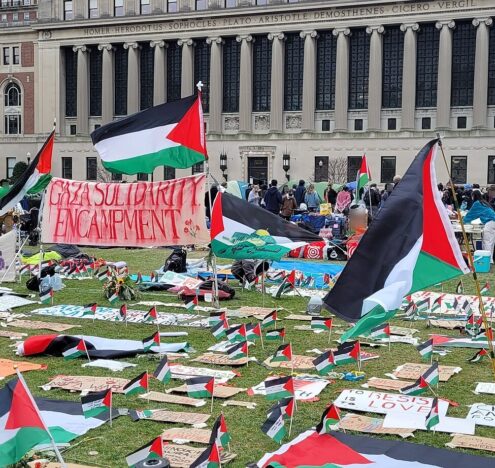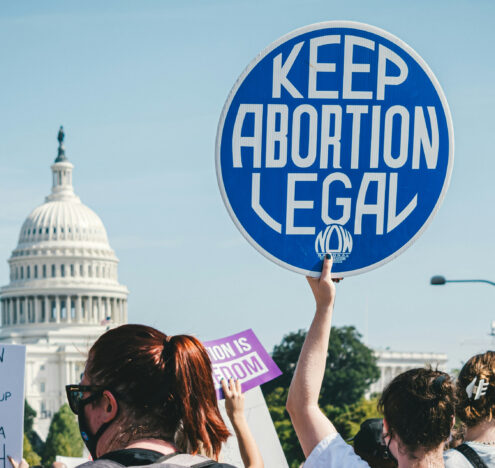In response to the Russian invasion of Ukraine, the United States and its allies adopted an unprecedented set of economic sanctions. As a result, Russian oligarchs, businesses, and even Russia’s central bank largely lost access to the dollar, the euro, and the pound, which are the most widely used currencies for international trade.
The intention was to exclude sanctioned individuals and entities from the global financial system. That didn’t entirely work. While the seizure of jaw-dropping expensive yachts generated great headlines, such activities have not as of yet financially crippled the targeted elites. Russia’s wealthiest have billions stashed in overseas anonymous companies, trusts, and other secretive but legal financial vehicles.
As it turns out, it can be challenging to find what you aren’t prepared to look for. In March 2022, the Biden administration stepped up its efforts to track down sanctioned assets with the creation of the new KleptoCapture Task Force. International allies have established their own national task forces. Now, seven other leading economies and the European Union have joined the United States to form the transnational Russian, Elites, Proxies, and Oligarchs (REPO) Task Force — the largest international asset tracing effort in history.
So why, given such unprecedented international cooperation, do the United States and G7 allies still struggle to uncover Russian dirty money, even as it has made its way into their own economies?
WHY THE STRUGGLE?
A new report by my organization, Transparency International U.S., in collaboration with our global network, offers insight into that critical question. Researchers compared several aspects of the anti-money laundering systems across REPO-participating countries. While no country was found to be properly prepared, the report cited the United States’s lack of a directory containing information on who owns companies registered here as a significant obstacle to tracing and freezing the funds of sanctioned Russians.
The difficulty and delay in tracing assets undermine the impact of the sanctions and the national security goals the United States hopes to achieve.
On Jan. 1, 2021, Congress passed the Corporate Transparency Act, a law to collect information on who owns and controls US registered companies. This critical reform will allow law enforcement and national security officials, for the first time, to follow the money as it moves through purposefully complex and layered corporate structures back to the real owners or their close associates. The administration is in the process of implementing the system. It’s too late for this crisis, but a game-changing reform for the future.
The report also cited the lack of rules for certain “gatekeepers” to our financial system — the lawyers, accountants, investment professionals, and others who, despite being intermediaries for foreign money entering our financial system, are not required to ask who stands to benefit from the companies they create and the transactions and assets they manage. With a bit of willful blindness, these gatekeepers can assist sanctioned individuals with a wide range of investment opportunities and access to the proceeds of those investments. Fortunately, Congress is now considering amending the Bank Secrecy Act to require these gatekeepers to ask a few basic questions about the prospective clients before giving them access to the US financial system.
Among the more embarrassing comparisons in the report was the disparity in funding for our Financial Crimes Enforcement Network (FinCEN), the Department of Treasury’s bureau meant to serve as a critical line of defense against dirty money, and counterparts in other nations. Before the 2021 passage of the Corporate Transparency Act, Congress had not updated US laws against money laundering or strengthened defenses against corrupt and terrorist finance since 9/11. As a result of the years of inattention, FinCEN now has fewer agents to safeguard our $20-trillion economy than its counterpart in Australia, an economy one-fifteenth the size.
As a proxy for the relative size of the covered financial sectors among REPO-participating countries, the report noted that financial intelligence agencies in Germany and France each receive fewer than 600 reports of suspicious financial activity per staff person per year. In contrast, FinCEN, even with a 30% increase to its 2022 budget in response to the Russian invasion of Ukraine, receives more than 10,000 such reports per staff person per year.
EMPOWERING THE FINANCIAL WATCHDOG
While Congress has provided some additional funding during this crisis, having an effective financial watchdog will require a far greater increase in resources for the necessary staffing, up-to-date technology, and access to data they need to do the job they are asked to do.
The difficulty and delay in tracing assets undermine the impact of the sanctions and the national security goals the United States hopes to achieve. The hollowed-out state of our financial enforcement network should be a wake-up call to Congress. It’s time to close the loopholes that weaken financial crimes enforcement and fully fund efforts to crack down on sanction-dodging dollars.
Gary Kalman is the Executive Director of Transparency International U.S.





















